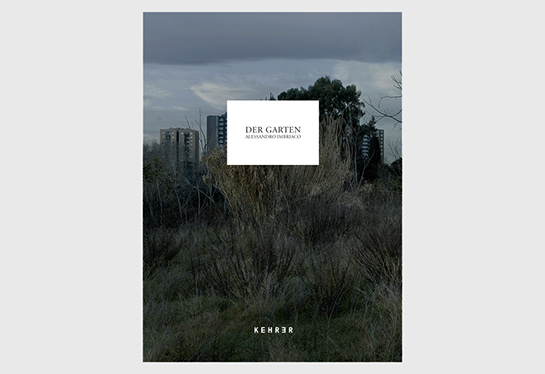Review: Der Garten by Alessandro Imbriaco

When I heard about Geoff Dyer’s Zona: A Book About a Film About a Journey to a Room I had high(ish) hopes. The idea that a writer like Dyer would explore the zone, the idea of the zone, appealed to me. It was not to be had, though, at least not in the form I had hoped for. To paraphrase Wittgenstein, the lives of books (meaning: of writers) are independent of our will. As is the zone itself, which, by the way, we must not think of as the zone you can be in (as in the expression “to be in the zone”).
The zone is more like an inadvertent construct, something that happens as much to us as it happens because of us. The zone is a part of the world, in which our desires and fears might have been realized, in some form. And this is the key: Might. Without the anticipation and dread, the zone wouldn’t be what it is. It would just be an empty parking lot instead, say. This might not be precisely Tarkovsky’s zone (I don’t want to slavishly stick to the movie), but it’s a zone we might be familiar with - or at least aware of. Any space has the potential to become that zone, regardless of what it is or where it is. But it is easiest to come closer to an understanding of the zone when we see it in and for others.
Alessandro Imbriaco’s Der Garten might serve as an example. The possibly worst access to a zone is provided by asking “what is this about?” What is Imbriaco’s work about? Well, look at the photographs! But don’t try to get what kind of information they visually describe, try to understand (to feel might be a better expression) what they say. Der Garten provides a fairly specific place, in all kinds of ways - that would be the literal reading (photography, of course, always encourages doing just that). But in many other ways it does not; it is the zone.
A little side note: For me, the book’s printing does not do the photographs justice. Too much appears to get lost in the shadows, of which there are many. I don’t know whether this was done intentionally or not. I also need to add that when it comes to details like this one, I’m probably much more of a stickler than many other people.
So anyway, the zone. Here is the zone, one of them anyway, the zone inhabited by this small group of people. In some way, the zone is the kind of space you inhabit where how you want to live and how you can live overlap, with both what you want but cannot have and what you have but don’t want leaving their imprints. This particular zone might have allusions of paradise (the garden). But one needs to be careful with such ideas, because someone’s paradise might be someone else’s hell (as an aside, the idea that we all hope for the same paradise seems absurd to me).
Someone’s paradise might be someone else’s hell - the essence of the zone.
Recommended.
Der Garten; photographs by Alessandro Imbriaco; essay by Bill Kouwenhoven; 72 pages; Kehrer; 2012
Also make sure to read Colin Pantall’s review!